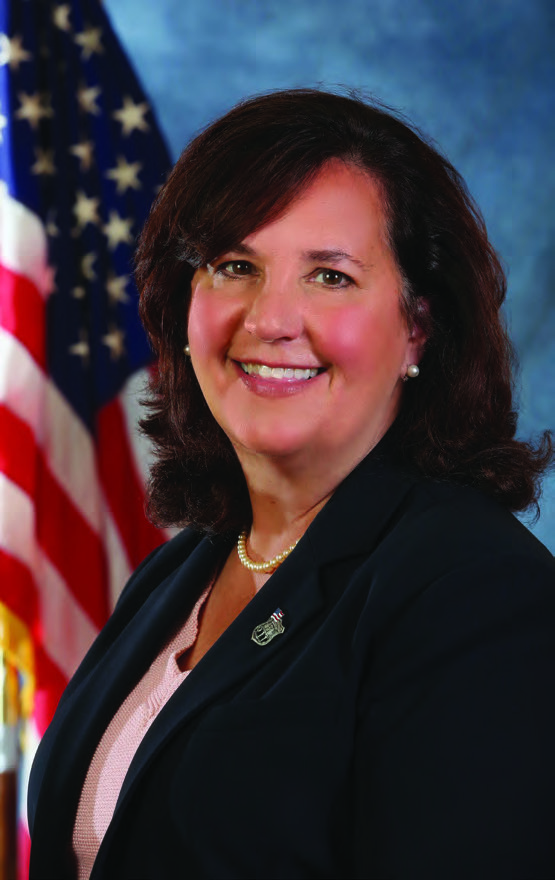Criminals aren’t in custody: Let’s reform bail reform
As a mother of four and a legislator deeply committed to public safety, I am compelled to address the recent horrific case in Babylon. This case — in which body parts were found in public spaces, including a park frequented by families, and a judge was unable to set bail and detain the defendants — highlights a disturbing trend: the prioritization of criminals over victims.
If the grim nature of the crime itself was not disturbing enough, the aftermath was discovered by a student, which underscores the real-life impact this crime has had on the local residents. Standing in the park myself last week was unsettling, and I couldn’t help feeling as if I were a character in a horror movie. Imagine how the residents who live near that park feel. How do those children ever return to that park and not think about what discovered there? I think we would all agree that those who are credibly suspected of dismembering two bodies and tossing them in a park like garbage aren’t people we want to be near in the grocery store, or in any public setting.
The suspects were quickly identified and charged with concealment of a human corpse, hindering prosecution, and tampering with physical evidence. Then, in a move that shocked residents, they were released back into the community. What should shock us all is that their release was required by state bail laws.
Our criminal justice system allows a judge to set bail to ensure that a defendant charged with a crime returns to court to face the charges. The delicate balance is that bail should be set at a level that a person can afford, but also be enough to give the defendant incentive to return to court. The current state of the law is that unless a crime is on the list of bail-eligible offenses, a judge is unable to set bail, and the threat the defendant poses cannot be considered. The inability of judges to consider that threat when determining whether to set bail or detain a suspect has allowed perpetrators of heinous crimes to go free.
These policies are a direct result of one-party rule prioritizing the rights of criminals over victims, and as a result, public safety has been compromised. The federal government and 49 other states allow judges to consider a defendant’s dangerousness in making these determinations, but New York stands alone in prohibiting this common-sense practice. In fact, the first bill I introduced in the Senate, which I carry with Assemblyman Ed Ra, would restore judges’ ability to keep dangerous defendants off the streets.
Alongside my colleagues in the State Legislature, including Sen. Anthony Palumbo and Assemblyman Michael Durso, I co-sponsored legislation aimed at rectifying some of the flaws in New York’s bail laws, which allowed the suspects in the Babylon case to walk free despite the gravity of their alleged crimes. Palumbo’s proposed bill aims to classify concealment or mutilation of a human corpse as a bail-eligible felony. Additionally, I introduced legislation to correct an egregious loophole after the district attorney warned that the suspects may be released from even GPS monitoring because New York’s bail reforms also placed the same time limitations on electronic monitoring as they do on pre-trial detention. This case highlights why these measures are urgently needed.
To be clear, I don’t believe that anyone should be held in custody simply because they lack the means to post bail, and I don’t think advocates on either side of this issue think the system was working perfectly before 2019. No policy is perfect, but as lawmakers, it’s our responsibility to continuously assess how policies are impacting people’s lives. Oregon has backtracked on its radical drug decriminalization policy in an acknowledgement of its unintended consequences. But since bail reform was passed in New York in 2019, Albany has offered only Band-Aids in response to the disastrous outcomes we have seen resulting from these “reforms,” rather than the substantive corrections we need to help ensure the safety of our communities.
As a mother, a legislator, and an advocate for community safety, I am committed to closing the loopholes in our bail laws that force judges to release suspects, like those in the Babylon case, back into the community, and arbitrarily limit law enforcement’s ability to monitor potentially dangerous suspects pending trial.
Patricia Canzoneri-Fitzpatrick represents the 9th Senate District.

 43.0°,
Partly Cloudy
43.0°,
Partly Cloudy 




